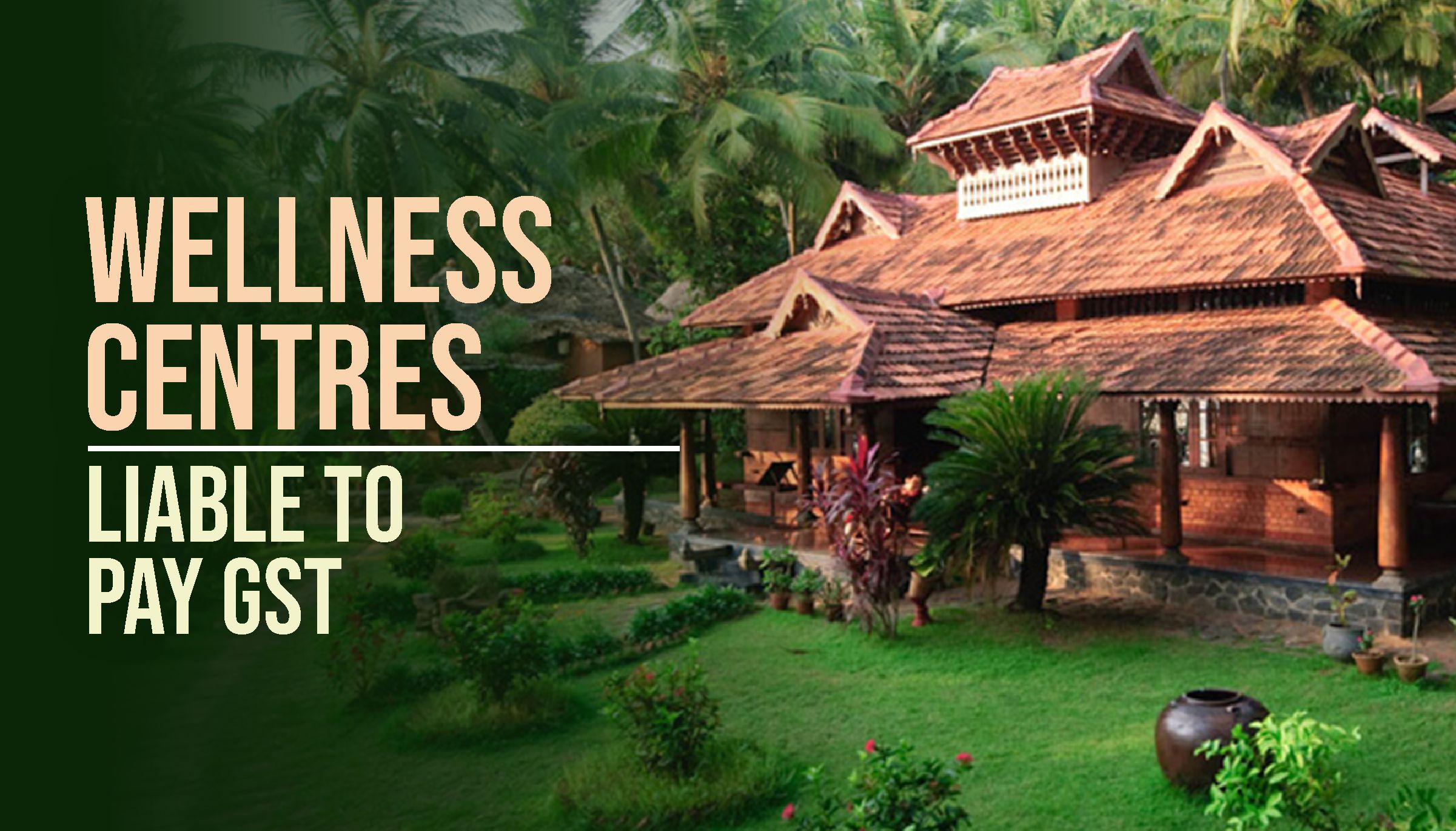Wellness Centres Liable to Pay GST: Key Rulings and Implications

The recent order by the Appellate Authority for Advance Ruling (AAAR) has significant implications for wellness centres operating within hotels and resorts. This article delves into the ruling, its context, and its potential impact on the wellness industry.
AAAR Ruling on Wellness Centres
The AAAR has upheld an earlier decision by the Uttarakhand Authority for Advance Rulings (AAR), establishing that wellness centres offering health therapy services within hotels or resorts are liable to pay Goods and Services Tax (GST). These services cannot be classified as ‘health-care services’ and are instead considered part of the accommodation services provided by these establishments.
Context of the Ruling
The ruling was issued in the case of Corbett Nature Reserve, Ramnagar Nainital. The resort operates an independent unit, Aahana Naturopathy Centre, registered under the Clinical Establishments Act, 2010, offering drugless cures and health care services such as yoga therapies. The appellant argued that these services should be exempt from tax as ‘health-care services’. However, the AAAR maintained that these services are ancillary to the primary accommodation services offered by the resort and are therefore taxable.
Tax Implications
The AAAR’s decision clarifies that wellness centres, even those providing health therapies under a separate operation within a hotel or resort, are subject to GST. The tax rates applicable are as follows:
- 5%, 12%, or 18% GST: Depending on the number of rooms and the nature of the accommodation services provided.
The AAAR emphasized that wellness centres advertise and market their accommodation services as their primary offering, with health therapies being an additional service. Thus, the accommodation service is considered the ‘principal supply’, while health therapies and other services are part of the ‘composite supply’.
Broader Implications for the Industry
The wellness centre sector in India has witnessed substantial growth in recent years, driven by increasing awareness about holistic health and the rising prevalence of lifestyle-related ailments. These centres, which offer a range of services including yoga, naturopathy, Ayurveda, and other alternative therapies, cater to a growing demographic that seeks preventive health care and stress management solutions. India’s rich heritage of traditional medicine, combined with modern wellness practices, positions the country as a unique destination for both domestic and international wellness seekers. The integration of wellness services into luxury hotels and resorts has further expanded the sector’s reach, making holistic health care accessible to a broader audience.

While the AAAR ruling is specific to the case of Corbett Nature Reserve, it sets a precedent that could affect other wellness centres operating within hotels or clubs. This includes:
- Residential yoga centres
- Residential naturopathy centres
- Residential acupuncture centres
- Residential Ayurveda centres
These facilities, previously enjoying a zero-tax status on healthcare services, will now be required to pay GST at rates of 12%, 18%, or 28%, effective from July 2017. This reclassification necessitates a reevaluation of pricing strategies and operational models for many wellness centres, potentially impacting their affordability and accessibility. Despite these hurdles, the sector’s growth prospects remain robust, supported by a strong demand for wellness tourism and an increasing emphasis on preventive health care. The continued evolution of the regulatory environment will be crucial in shaping the future trajectory of wellness centres in India.
